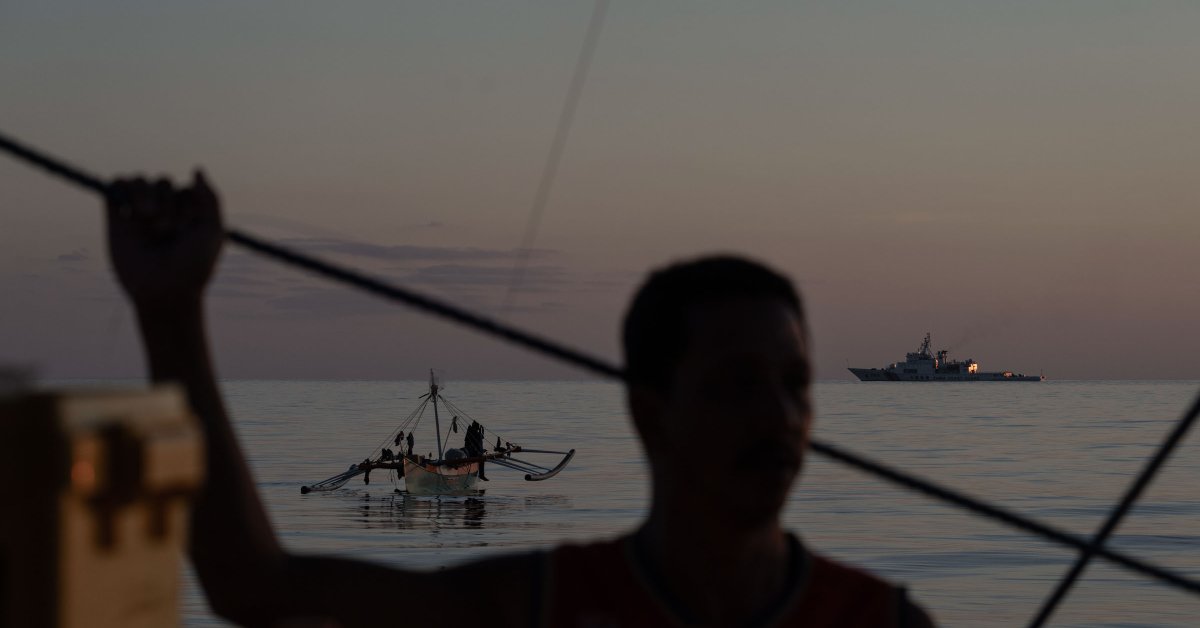The Future Of Our Oceans: A Geopolitical Perspective

Welcome to your ultimate source for breaking news, trending updates, and in-depth stories from around the world. Whether it's politics, technology, entertainment, sports, or lifestyle, we bring you real-time updates that keep you informed and ahead of the curve.
Our team works tirelessly to ensure you never miss a moment. From the latest developments in global events to the most talked-about topics on social media, our news platform is designed to deliver accurate and timely information, all in one place.
Stay in the know and join thousands of readers who trust us for reliable, up-to-date content. Explore our expertly curated articles and dive deeper into the stories that matter to you. Visit Best Website now and be part of the conversation. Don't miss out on the headlines that shape our world!
Table of Contents
The Future of Our Oceans: A Geopolitical Tightrope Walk
The world's oceans, vast and mysterious, are facing unprecedented challenges. Climate change, overfishing, pollution, and resource exploitation are pushing these vital ecosystems to the brink. But the future of our oceans isn't just an environmental issue; it's a complex geopolitical one, shaping international relations, economic competition, and even national security. This article explores the key geopolitical factors influencing the future of our oceans and the crucial decisions we face.
The Race for Resources: A New Cold War?
Our oceans are rich in untapped resources. From valuable minerals like cobalt and manganese crucial for green technologies (like electric vehicle batteries) found in polymetallic nodules on the seabed, to vast reserves of oil and gas, the economic potential is immense. This has sparked a new kind of competition, sometimes referred to as a "blue rush," with nations vying for control of these resources. The Arctic, particularly, is a hotspot, with melting ice opening up new shipping lanes and access to previously inaccessible resources, leading to increased tensions between bordering nations. This competition raises concerns about potential conflicts and the need for robust international frameworks to govern resource extraction and prevent exploitation. The UN Convention on the Law of the Sea (UNCLOS) plays a crucial role here, but its effectiveness is constantly tested.
Climate Change: An Existential Threat to Maritime Nations
Rising sea levels, ocean acidification, and extreme weather events pose an existential threat to many island nations and coastal communities. These impacts are disproportionately affecting developing countries, leading to displacement, economic hardship, and increased vulnerability to natural disasters. This creates geopolitical instability, potentially leading to mass migration and conflict over dwindling resources. The need for global cooperation on climate change mitigation is not just an environmental imperative; it's a matter of international security. International agreements like the Paris Agreement are critical but require stronger implementation and commitment from all nations.
Maritime Security: Protecting Vital Sea Lanes
The oceans are vital for global trade, with approximately 90% of global goods transported by sea. Protecting these vital sea lanes from piracy, terrorism, and other threats is crucial for maintaining global economic stability. This requires international cooperation, sharing of intelligence, and the coordinated efforts of navies around the world. However, differing national interests and priorities often complicate these efforts, leading to challenges in establishing a truly unified approach to maritime security. The increasing militarization of the oceans adds another layer of complexity to this issue.
Fishing Rights and Disputes: A Delicate Balance
Overfishing is depleting fish stocks worldwide, leading to conflicts between nations over fishing rights. Illegal, unreported, and unregulated (IUU) fishing further exacerbates the problem, undermining efforts to manage fisheries sustainably. These disputes can escalate into diplomatic incidents and even military confrontations. Sustainable fishing practices and robust enforcement mechanisms are crucial for resolving these conflicts and ensuring the long-term health of our oceans and the livelihoods that depend on them.
The Path Forward: Collaboration and Sustainable Practices
The future of our oceans depends on international cooperation, sustainable practices, and a commitment to responsible resource management. This requires a shift in perspective, moving away from a focus on individual national interests towards a more collaborative approach that prioritizes the health of the oceans as a global commons. Investing in research and technology, promoting sustainable fishing practices, and strengthening international legal frameworks are all essential steps towards safeguarding the future of our oceans and ensuring a stable and secure future for generations to come. We need innovative solutions, stronger international agreements, and a collective commitment to protecting this vital resource for all. The challenge is clear: will we rise to the occasion and ensure a sustainable future for our oceans, or will we continue down a path of conflict and depletion?

Thank you for visiting our website, your trusted source for the latest updates and in-depth coverage on The Future Of Our Oceans: A Geopolitical Perspective. We're committed to keeping you informed with timely and accurate information to meet your curiosity and needs.
If you have any questions, suggestions, or feedback, we'd love to hear from you. Your insights are valuable to us and help us improve to serve you better. Feel free to reach out through our contact page.
Don't forget to bookmark our website and check back regularly for the latest headlines and trending topics. See you next time, and thank you for being part of our growing community!
Featured Posts
-
 Betting Preview Roland Garros Semifinals Musetti Vs Alcaraz And Djokovic Vs Sinner
Jun 06, 2025
Betting Preview Roland Garros Semifinals Musetti Vs Alcaraz And Djokovic Vs Sinner
Jun 06, 2025 -
 De La Hoyas Post Fight Criticism Haney Targeted In Sharp Remarks
Jun 06, 2025
De La Hoyas Post Fight Criticism Haney Targeted In Sharp Remarks
Jun 06, 2025 -
 Jewish Self Defense Why We Need To Take Responsibility For Our Safety
Jun 06, 2025
Jewish Self Defense Why We Need To Take Responsibility For Our Safety
Jun 06, 2025 -
 The 2 C Threshold A Timeline For Corporate Climate Adaptation Strategies
Jun 06, 2025
The 2 C Threshold A Timeline For Corporate Climate Adaptation Strategies
Jun 06, 2025 -
 For Eighth Year Delta Named One Of Americas 50 Most Community Minded Companies
Jun 06, 2025
For Eighth Year Delta Named One Of Americas 50 Most Community Minded Companies
Jun 06, 2025
